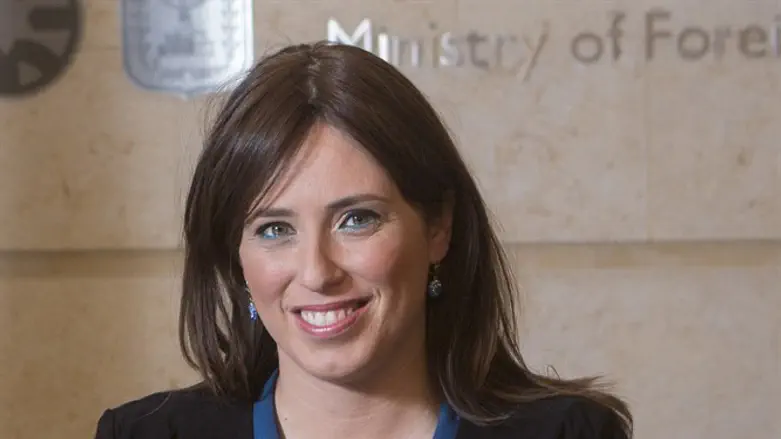
Israeli Deputy Foreign Minister Tzipi Hotovely (Likud) said US Jews are “people who do not have to send their children to fight for their country” and that “most of them are living comfortable lives.”
Tzipi Hotovely appeared Wednesday on i24, an Israeli based English language news channel. She was addressing increased tensions between Israel and US Jewry, including the issue of egalitarian prayer at the Western Wall and the Israeli government’s policies on Israeli and Palestinian Authority Arabs.
Hotovely noted that an egalitarian prayer area already exists at the Western Wall, but “most of the time it's empty.”
“And the reason it’s empty, if you’re asking me, it’s not because they don’t like the arrangement, it’s empty because most of the time those people [who insisted on it] are not even interested in going to the Kotel (Western Wall).”
“The Israeli government was doing a great deal in order to make sure that they have egalitarian prayer, that women can pray together with their families, that men can pray together with their daughters. Everything is set up but they are not willing to accept it. Because if you’re asking me this is a political matter.
“They want to gain recognition through the Kotel issue and they are making a religious, holy place into something for political dispute. I really think the solution that was offered was quite good.”
“I think it’s a very important goal to bring American Jews closer to Israel, this is one of my goals, but we need to be open about this,” Hotovely said.
Hotovely decried her disinvitation earlier this month from the Princeton University Hillel because of her past comments on Israeli Arabs.
“What is happened to Hillel, what is happening to freedom of speech and academic freedom, what is happening to very basic human respect for the fact you invited an overseas representative of the Israeli government and you cancel the appearance on the same day because some students don’t like my opinions -- this is something really bad that’s happening under what I call the new liberal dictatorship,” she said.
Hotovely spoke at the college Chabad House instead. Hillel later apologized for its president's behavior, Arutz Sheva discovered that this was not the first time she had denied the right to speak to a speaker invited by Hillel students..
Hotovely also said she wished more American Jews would move to Israel to influence the political process there. “One of my goals,” she said, is to “bring American Jews closer to Israel.” “Everyone is welcome to come here to influence Israeli politics.”
However, she noted that American Jews who don't live here don't understand the complexity of life in the Middle East, or what it means to have a mandatory draft.
“The other issue is not understanding the complexity of the region,” she said. “Most [American] Jews don’t have children serving as soldiers, going to the Marines, going to Afghanistan, or to Iraq. Most of them are having [sic] quite comfortable lives. They don’t feel how it feels to be attacked by rockets, and I think part of it is to actually experience what Israel deals with on a daily basis.
“This is the reason for the distancing between US Jews and Israel. American Jews contribute a great deal to Israel, but they cannot condition their connection to Israel on the government's policies. We need to remember that the past few years have seen stormy discussions about Judaism and identity. These arguments are a healthy part of democracy.”
Though there is a continuous and organized Jewish presence in the US military, the vast majority of American Jews do not serve in the US army. Meanwhile, Israel estimates that 2,900 lone soldiers have parents who live abroad, many of them from the USA.
Israeli Prime Minister Binyamin Netanyahu said he “condemns Tzipi Hotovely's offensive remarks regarding the American Jewish community. The Jews of the Diaspora are dear to us and are an inseparable part of our people. There is no place for such attacks, and her remarks do not reflect the position of the State of Israel.”
Watch the full interview here: